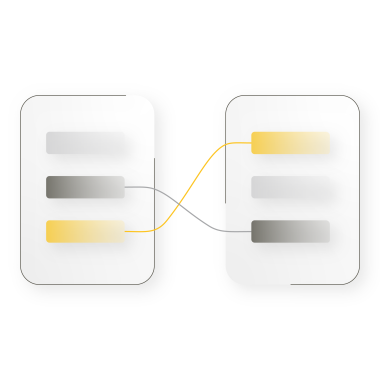The roads in Europe are filled with trucks, and it will get even busier with road freight volume expected to rise for years to come.
At the same time, 30% of trucks are moving around empty. 20% of these trucks are completely empty, while the remaining 10% is divided across partly empty trucks. There is literally a tonne (or thousands of tonnes) of room for improvement.
Getting administration costs down and increasing the efficiency of transport operations are critical points of focus in the industry. At the same time, the transport industry is struggling with several challenges. There has been a driver shortage for years, and there doesn’t seem to be a solution. The shortage is now even worse due to the war in Ukraine. In the past two years, we have seen many supply chain disruptions, and supply chains worldwide are still in recovery mode.
Data is the new gold
One way the logistics industry can bring administrative costs down, increase efficiency in operations, and improve service levels is through digitalisation.
Traditional forwarders and transport companies rely on the knowledge and experience of their people. One of these companies’ greatest assets is highly experienced planners with specialised knowledge and a vast network — that is, until they decide to leave. Digitalising this knowledge and experience allow companies to scale their operations and leverage that knowledge across their organisations.
If the enormous amounts of data available at all levels and links in the supply chain are used in a more advanced way, it can increase efficiency. A data-driven approach is the main differentiating factor between traditional and digital freight forwarders.
Digitalisation is no longer an option
There is so much data available in the freight forwarding industry that digitalisation is no longer an option. It is a must. Just think about the many options available when you try to match a shipment to the right provider. So many factors can influence such a decision, so it is impossible for a human being to oversee this and make the best decision.
This is where artificial intelligence, machine learning, and advanced algorithms save the day. Algorithms can analyse huge amounts of data at warp speed and, for example, connect the right provider, to the proper shipment, at the best price, according to all requirements. Artificial intelligence is matching the freight. Transporeon’s Transportation Management Platform and its Freight Matching for Forwarders solution does precisely that.




